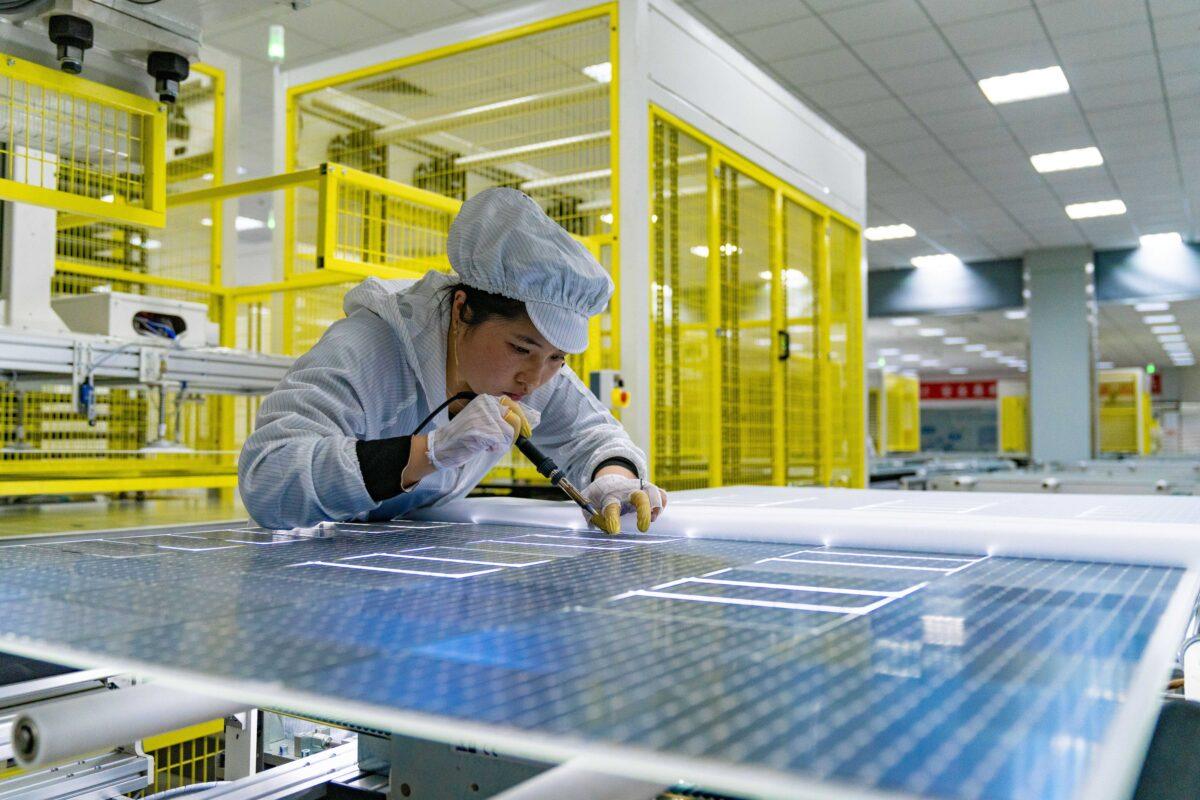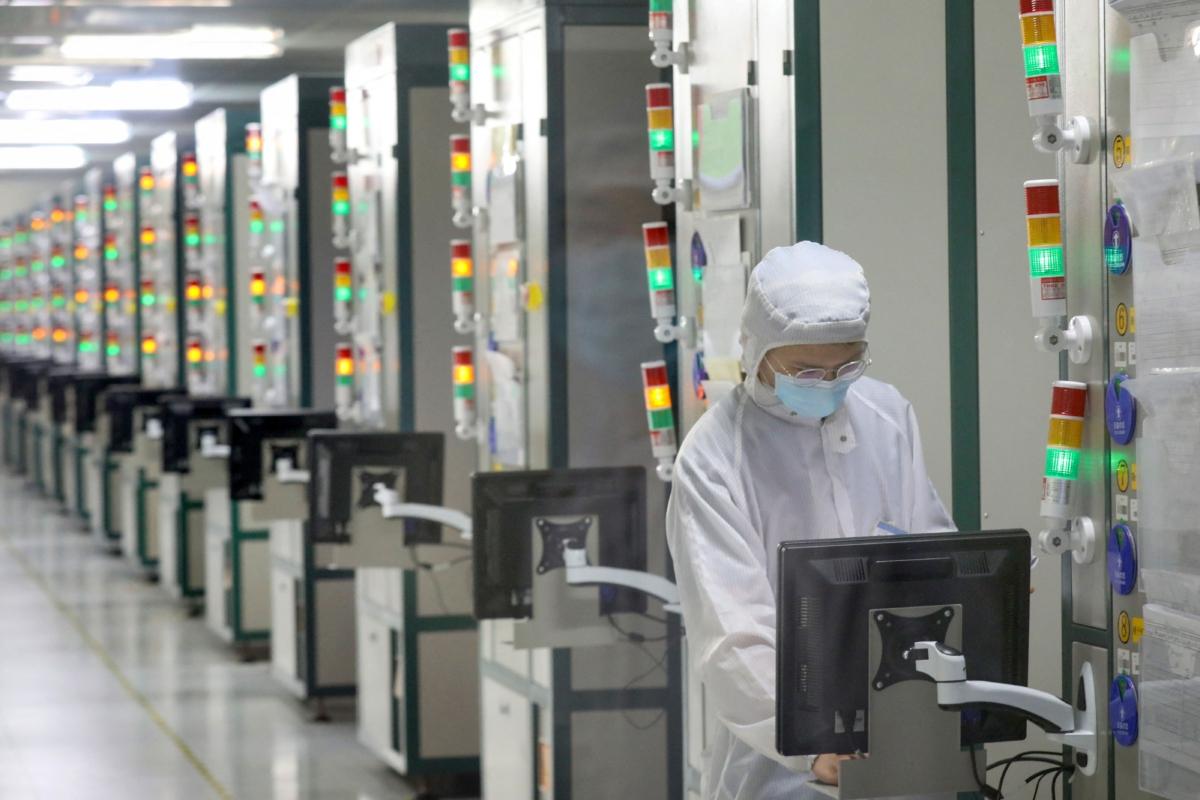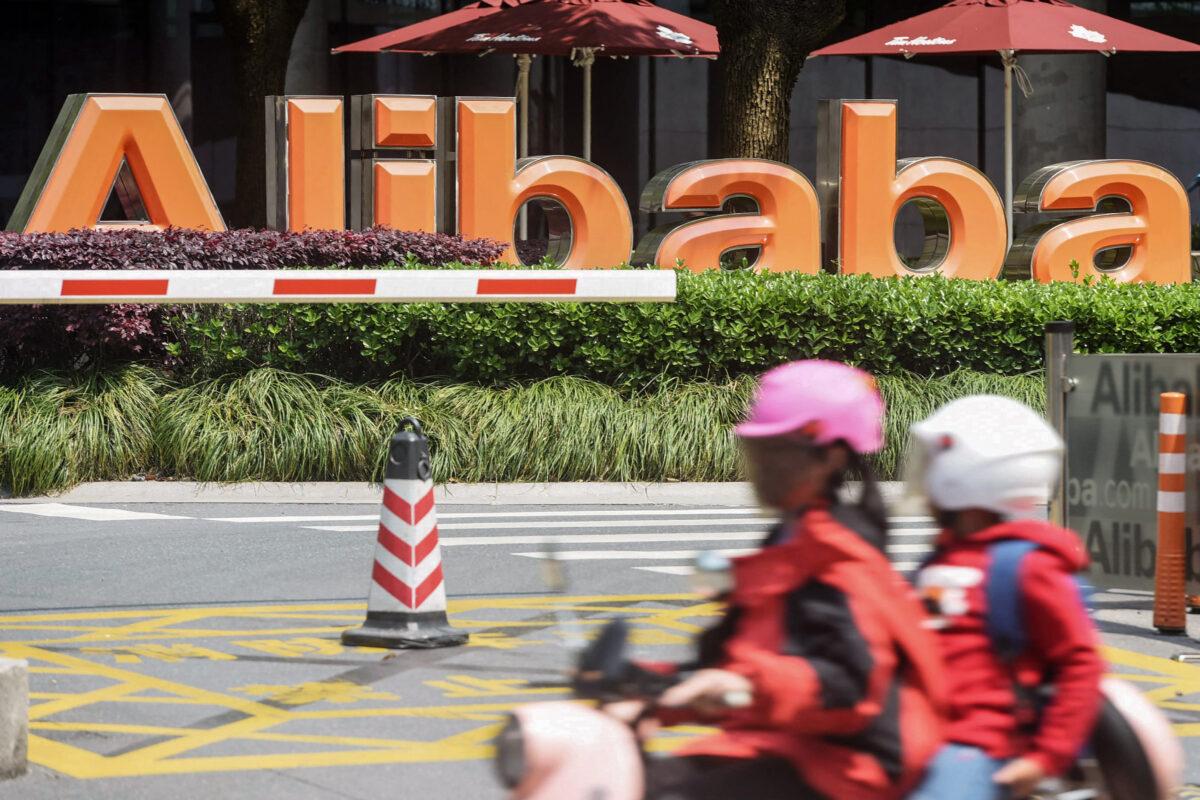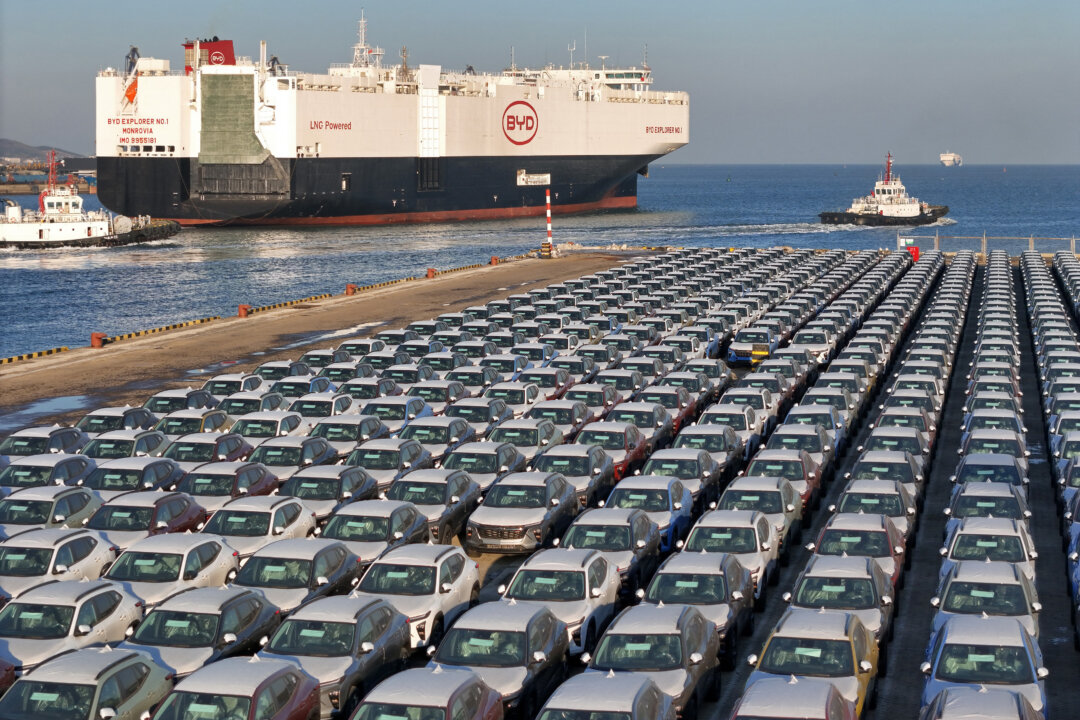During Janet Yellen’s recent visit to China, she urged Chinese authorities to address their overcapacity problems to prevent global spillovers.
News Analysis
China’s weak domestic demand has prompted the country to ramp up exports of cheap goods, leading to a global glut of excess capacity worth trillions of dollars. This has led to significant global economic distortions and triggered a backlash from several countries, including the United States.
U.S. Treasury Secretary Janet Yellen concluded a four-day visit to China on April 9, during which she repeatedly urged Chinese authorities to address their overcapacity problems to prevent global spillovers.
Her primary goal during the trip was to persuade Chinese officials to curb overcapacity in clean energy technologies such as electric vehicles (EVs), solar panels, and lithium-ion batteries, which threaten competing companies in the United States and other countries.
Despite these discussions, Ms. Yellen acknowledged on April 8 that significant policy shifts from the Chinese authorities are unlikely in the near future. This ongoing issue remains a point of contention in U.S.-China economic relations, reflecting broader concerns about trade imbalances and market disruptions.
New Wave of Excess Capacity
A report released late last year by research firm Rhodium Group found that China’s auto industry has over 100 auto brands. With China’s post-pandemic economic recovery faltering, these brands had to look for markets overseas. The report states that China’s share of global EV exports has grown from 4 percent in 2020 to 21 percent in 2022.
In the solar panel industry, data from Ember, an independent energy think tank, shows that in the first half of 2023, China’s solar panel exports increased by about one-third year on year, reaching 114 gigawatts, equivalent to the total installed capacity of solar panels in the United States.
Europe is in a “price war” with China, said Gunter Erfurt, CEO of Swiss panel maker Meyer Burger.
In Europe, the price of solar modules fell by 50 percent within four weeks in the later days of 2023. Mr. Erfurt believes it was a sign that China was discounting at an “unprecedented speed” to grab market share.
‘China Shock 2.0’
This wave of overcapacity has been dubbed “China Shock 2.0”. The first “China Shock” took shape about two decades ago.
The United States granted China permanent normal trade relations (PNTR) status in 2000, ensuring that Chinese goods would face low tariffs when entering the U.S. market. In 2001, China officially joined the World Trade Organization. Over the next decade, imports from China into the United States accelerated.
In 2016, economists David H. Autor, David Dorn, and Gordon H. Hanson published the paper “The China Shock: Learning from Labor-Market Adjustment to Large Changes in Trade.” They found that between 1997 and 2011, increased imports from China caused the U.S. manufacturing sector to directly or indirectly lose about 2 million jobs, including 985,000 manufacturing jobs. The hardest hit sub-industries were those with low-skilled workers, such as apparel, textiles, footwear, and computer and electronic parts.
Party-State Capitalism
The Information Technology and Innovation Foundation (ITIF) points out that Chinese Communist Party (CCP) policymakers fundamentally reject the classic trade concept of “comparative advantage”—the principle that countries should specialize in producing the goods or services they are most efficient at and then trade for the rest. Instead, the CCP seeks “absolute advantage” across a range of industries, from high-speed rail and steel to semiconductors, vitamins, and solar panels.

In their book “Subsidies to Chinese Industry: State Capitalism, Business Strategy, and Trade Policy,” George T. Haley and Usha C.V. Haley wrote that the CCP’s strategy has long been to “aggressively subsidize targeted industries to dominate global markets.”
The book noted that in the 2000s, China provided nearly $100 billion in subsidies to three industries alone: $33 billion to the paper industry, $28 billion to auto parts, and $27 billion to the steel industry.
“Despite the fact that labor accounted for just 2 to 7 percent of costs (raw materials and energy accounted for much more) in these industries and that most producers were small and inefficient, Chinese products in these sectors routinely sold for 25 to 30 percent less than those from American or European competitors. In fact, since China joined the WTO in 2001, subsidies have annually financed 20 percent of China’s manufacturing capacity,” the authors remarked.
The ITIF report stated that in the steel industry, China’s share of global production has grown from 15 percent in 2000 to 50 percent in 2015, while the U.S. share has halved—from about 12 percent to 6 percent.
Between 2010 and 2012 alone, the Chinese regime provided at least $42 billion in subsidies to the solar industry, according to the GW Solar Institute at George Washington University.
China’s share of global solar panel exports soon grew from 5 percent in the mid-2000s to 67 percent in 2018, which triggered a global oversupply. In just five years, from 2008 to 2013, world solar panel prices plummeted by 80 percent, as China successfully drove most of its more innovative foreign competitors out of business, according to the ITIF report.
Chinese companies then bought up bankrupt U.S. solar companies, acquired their advanced technology, and brought it back to China.
The CCP is trying to replicate the same strategy in other advanced technology industries, such as semiconductors and batteries.
For example, the CCP’s National Integrated Circuit Strategic Plan provides at least $160 billion in government subsidies to create a fully self-sufficient semiconductor industry in China, which will then seek to develop and compete internationally, the report said.
In fact, in 2023, Huawei alone received about $30 billion in government subsidies for wafer production starting in 2022, according to an SIA briefing obtained by Bloomberg.

Threat to US
The CCP’s party-state capitalism, which has created waves of overcapacity, poses a threat to the United States.
In her article “How Does Party-State Capitalism In China Interact With Global Capitalism?” Margaret M. Pearson, a professor of Political Science at the University of Maryland, explained what Party-state capitalism is.
“State capitalism typically refers to state economic intervention or ownership of firms with the goal of promoting growth and bolstering geostrategic or economic competition, or both, particularly in globalized industrial sectors. Party-state capitalism is distinct from state capitalism because regime survival is the overarching priority. Economic goals still feature prominently in the state’s interventions, but the political purpose is uppermost, making regime survival the prime aim of economic policy. This political bottom line is illustrated by several recent trends,” she wrote.
In a January 2021 article, Jude Blanchette, an American foreign policy analyst and China specialist serving as Freeman Chair in China Studies at the Center for Strategic and International Studies, a think tank in Washington, D.C., noted that one of the most pressing challenges facing the U.S. government is “how to compete with, and push back against, China’s increasingly powerful and disruptive state capitalist system,” which not only threatens U.S. economic and strategic interests, but also undermines the regulatory and legal framework that underpins the global economy.
Ms. Pearson also noted that in recent years, party branches have expanded in private and foreign firms, and the CCP officials have been given senior posts, including in some of China’s best-known companies, such as the automaker Geely and the e-commerce giant Alibaba.

Mr. Blanchette pointed out that the CCP has created a robust set of formal and informal mechanisms to build connectivity between state-owned and so-called private firms.
“Companies competing in non-strategic sectors can largely operate on more or less market terms, but for any sector or industry that Beijing has deemed strategic, foreign companies must expect that the Chinese government has placed its fingers on the scales to benefit domestic firms. Thus, when a U.S. or European firms compete against, say, COSCO Shipping or Huawei, it is the entirety of the Chinese government’s balance sheet that it must contend with, not just an individual firm,” he wrote.
Starting in 2015, the CCP introduced “special management shares” to monitor media and technology companies. Baidu, Tencent and Alibaba all had to allow the CCP to buy 1 percent stake, which allowed the authorities to tighten their grip and influence key business decisions.
“What gives this state capitalist system such immense global force are the synergies and interconnectivity between and among Chinese firms, state-owned banks and investors, and the Chinese Party-state. This commercial-strategic ecosystem, which I have dubbed ‘CCP Inc.,’ possesses an unrivaled ability to deliver the complete value package when entering overseas investment deals: it can buy, build, and finance on a scale and speed that is unmatched,” Mr. Blanchette warned.

